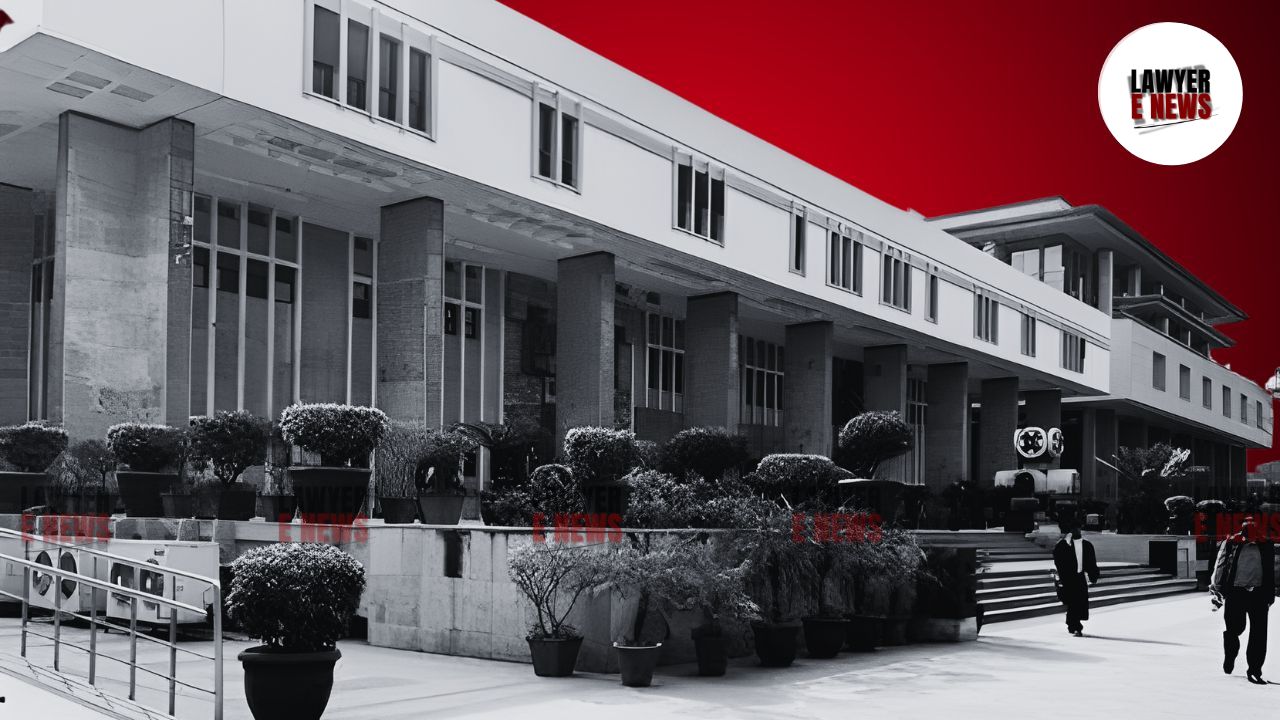-
by Admin
15 February 2026 5:35 AM



Delhi High Court, in Central Bureau of Investigation v. Mahesh Agarwalla & Akshaya Mohapatra, ruled that the accused cannot invoke Section 91 of the Code of Criminal Procedure (CrPC) to seek production of documents before charges are framed. The Court set aside lower court orders that directed the CBI to provide communication sent to the Ministry of Home Affairs (MHA) for intercepting phone calls.
The CBI registered an FIR on April 5, 2017, against Mahesh Agarwalla and others for offences under Sections 120-B IPC and Sections 7, 13(2), and 13(1)(d) of the Prevention of Corruption Act, 1988. After filing the chargesheet in February 2021, the accused sought the production of request letters that the CBI sent to the MHA to intercept phone calls.
The Special Judge (CBI Court) granted the respondents' request, directing the CBI to disclose these communications. Aggrieved, the CBI approached the High Court under Section 482 CrPC.
I. Section 91 CrPC: Application at Pre-Charge Stage
The main issue was whether the accused could invoke Section 91 CrPC to seek documents before charges were framed. The High Court ruled that an accused is not entitled to seek production of documents at the pre-charge stage, relying on the Supreme Court's decision in State of Orissa v. Debendra Nath Padhi (2005) and State of Rajasthan v. Swarn Singh @ Baba (2024).
Justice Jasmeet Singh observed that Section 91 allows the court to summon documents only when necessary or desirable for inquiry, investigation, trial, or proceedings, but emphasized:
“The accused cannot invoke Section 91 CrPC at the stage of framing of charges, as their defense is not relevant at that stage. The section cannot be used to seek documents before the defense stage in the trial.”
II. Interception of Phone Calls and Privileged Communication
The CBI claimed privilege over the request letters under Sections 123 and 124 of the Indian Evidence Act, 1872, as these communications contained sensitive information. The Court agreed, holding that the interception requests were privileged, confidential, and could not be disclosed. It also noted that the Review Committee had found no violations in the interception orders, which were issued under Section 5(2) of the Indian Telegraph Act, 1885.
The Court reiterated that “State communications concerning interception are protected from disclosure under Sections 123 and 124 of the Evidence Act,” and directed the CBI to preserve the documents but not disclose them at this stage.
III. Right to Privacy and Lawful Interception
The respondents had argued that their right to privacy was violated by the interception of their calls. However, the Court rejected this, affirming that the right to privacy is not absolute and can be restricted by lawful means under Section 5(2) of the Telegraph Act. The interception had been reviewed and upheld by the competent authority, and there was no evidence of unlawful action by the CBI.
The Delhi High Court allowed the CBI's petition, setting aside the Special Judge's orders dated 20.12.2022 and 16.01.2023, which had directed the CBI to disclose privileged communications. The Court held that Section 91 CrPC applications for document production could only be entertained after charges are framed, and privileged communications under Sections 123 and 124 of the Evidence Act were protected from disclosure.
The respondents were granted liberty to file applications at the appropriate stage, but the CBI was directed to preserve the documents.
Date of Decision: October 16, 2024
Central Bureau of Investigation v. Mahesh Agarwalla & Akshaya Mohapatra
